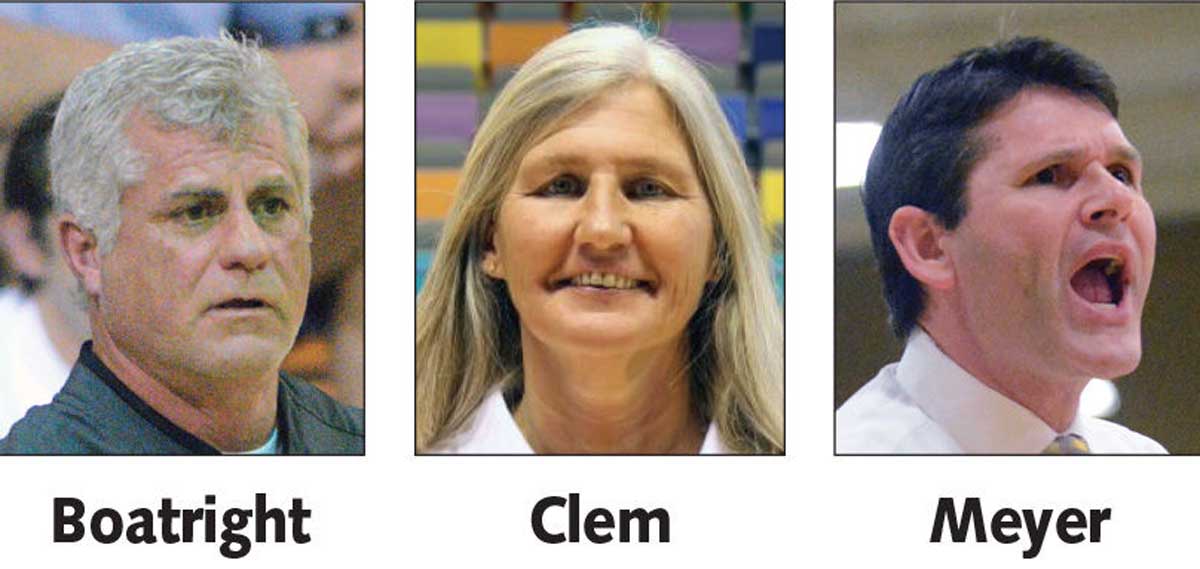Kentucky woman blazes trail against bullying
Published 2:05 pm Thursday, September 17, 2015

- Kentucky educators dressed up to play the roles of "School Safety Superheroes" related to this year's Kentucky Safe Schools Week theme during a seminar led by Kentucky Center for School Safety Director Karen McCuiston on Tuesday at Barren County High School in Glasgow, Kentucky.
GLASGOW, Ky. — Karen McCuiston vividly recalls the day that changed her life forever.
On Dec. 1, 1997, McCuiston was at her job in the McCracken County Schools central office in western Kentucky preparing for another day of work in public relations and grant writing when she got the word — there had been a shooting at the now-closed Heath High School in Paducah, Kentucky near the Ohio River.
“My husband taught agriculture at Heath High School,” McCuiston told an audience of Barren County, Kentucky educators on Tuesday. “My husband was there. All my community was there.”
Shooter Michael Carneal, a 14-year-old freshman, had shot eight students, three mortally, who had arrived at school for an early-morning prayer group in one of the country’s first publicized school shootings. The immediacy of the question — Why? — was soon replaced by an answer that has since been a driving force for McCuiston. Bullying, combined with serious mental health issues, had driven Carneal to strike out with lethal violence that morning.
“If you say it can’t happen at my school, I’m just going to tell you — I thought the same thing, and I’m going to pray that it never happens at your school,” McCuiston said. “But we had to step back and decide what do we need to do to be working with our children enough that they don’t feel like they’re that desperate?”
McCuiston, the director for the Kentucky Center for School Safety (KCSS), has been striving to help provide answers to that question ever since that day in 1997. In 2014, McCuiston spoke to more than 5,000 students and faculty across the state before, during and after Kentucky Safe Schools Week, and she expects to do the same this year.
The goal, as always, is to stop bullying in schools by teaching empathy and providing students with options to intervene when they see bullying happen, whether in person or online. It’s the same message McCuiston has been helping spread since the KCSS was created by statute in 1998, and she has seen a shift toward awareness of the issue in the years since — so much so, that it is now necessary to define what is and what is not bullying.
“There are just conflicts,” McCuiston said. “We still have to work through them, but it’s not bullying. There’s a difference. Bullying’s repeated and powerful. They want power over someone, and it’s purposeful.”
Teaching empathy by modeling the behavior and building lessons into the curriculum can both stop bullying before it starts and ensure that fellow students, who will feel a responsibility and have empowerment to report instances they are aware of or witness, do not tolerate the behavior.
According to a survey linked to a Huffington Post article last year, fewer bullying incidents and more bullying cessation efforts were reported in schools where students had more empathy and compassion for one another.
“Everybody has felt bullied, not necessarily been bullied, but felt that,” McCuiston said. “The exclusion part, anyway — that’s a part of the bullying. And 57 percent of the kids in the Character Counts Survey said they’d bullied someone else online. It just shows that this is something that’s common to everybody and it can hit everybody’s heart.”
Through the campaigns and presentations she and her organization have developed to better inform educators and school staff, McCuiston and the KCSS continue to promote awareness that will hopefully stay with each adult and student in each of the school districts she visits.
“It’s up to us to get that message out there, not only to those stakeholders but our parents, too,” Barren County Schools Superintendent Bo Matthews said. Matthews, who serves on the state’s bullying task force, said while there are policies in place to deal with bullying, more can be done.
“We have our policies and procedures that we follow, but we’re taking it up to another level in Barren County Schools,” he said, referring to the district’s Stop Tip Line and other efforts geared toward how bullying is handled in his district.
“We’ve had it for over a year and it’s been live and we’ve been using it, but it’s still brand-new to the majority of students and staff,” Matthews said.
While McCuiston is thrilled to hear plans like Matthews’, she also hopes to help spark similar action across the state to combat bullying.
“I just think we can never stop,” McCuiston said. “We want to deal with bullying and conflict before we get to the bullets. I’ve lived that. I won’t go back there.”
The Glasgow (Kentucky) Daily Times contributed details to this story.





